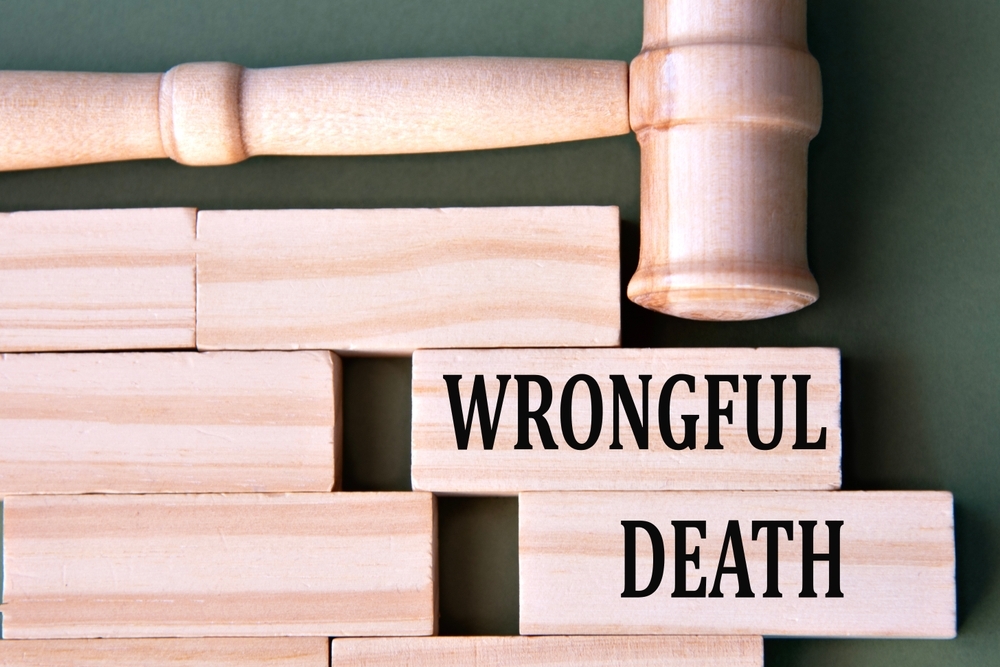
The unexpected loss of a loved one is one of life’s most challenging experiences, especially when their death was caused by someone else’s negligence or misconduct. In such cases, filing a wrongful death claim can provide families with a sense of justice and financial support as they navigate their grief. Florida law offers clear pathways for pursuing these claims, but the process can be emotionally and legally complex.
This guide offers a compassionate overview of Florida’s wrongful death laws, explaining who can file a claim, the damages available, and the steps to take with the help of an experienced wrongful death lawyer.
What Is a Wrongful Death Claim in Florida?
A wrongful death claim arises when someone’s death is caused by the negligence, recklessness, or intentional misconduct of another party. These claims aim to compensate surviving family members for the financial and emotional losses they have suffered as a result.
Common Causes of Wrongful Death Claims
- Car accidents caused by reckless or impaired drivers
- Medical malpractice, including surgical errors and misdiagnoses
- Workplace accidents due to unsafe conditions
- Premises liability cases, such as fatal slip-and-fall incidents
- Defective products or equipment
Eligibility to Pursue a Wrongful Death Case in Florida
In Florida, a wrongful death case must be initiated by the personal representative overseeing the deceased individual’s estate. This person is generally identified in the deceased’s will or estate plan, but if no such designation exists, a representative will be appointed by the court.
Beneficiaries Eligible for Compensation
While the claim is filed by the personal representative, the damages awarded benefit the deceased person’s survivors, which may include:
- Spouse
- Children
- Parents
- Blood relatives or adoptive siblings who were dependent on the deceased
Each survivor’s eligibility for compensation depends on their relationship to the deceased and the specific circumstances of the case.
Types of Damages Available in a Wrongful Death Claim
A wrongful death claim can help families recover various types of damages, designed to compensate for both economic and non-economic losses.
Economic Damages
These are tangible financial losses resulting from the death, including:
- Medical Expenses: Costs incurred for medical care prior to the loved one’s passing.
- Funeral and Burial Costs: Reasonable expenses related to laying the deceased to rest.
- Loss of Financial Support: Compensation for income the deceased would have provided to the family.
Non-Economic Damages
These damages address the emotional and psychological impact of the loss, such as:
- Loss of Companionship: For the spouse or children who have lost a cherished relationship.
- Pain and Suffering: Emotional anguish experienced by surviving family members.
- Loss of Parental Guidance: For children who depended on the deceased for care and support.
Punitive Damages
In instances of severe misconduct or reckless disregard, punitive damages might be granted as a means to hold the responsible party accountable and discourage future violations.
Steps to File a Wrongful Death Claim in Florida
Pursuing a wrongful death claim involves multiple steps, each requiring attention to detail and a clear understanding of the legal process.
Step 1. Consult a Wrongful Death Lawyer
The first and most critical step is to consult an experienced wrongful death lawyer. They will evaluate the circumstances of your case, determine its viability, and guide you through the legal process.
Step 2. Appoint a Personal Representative
If one hasn’t already been designated, the court will appoint a personal representative for the deceased’s estate. This individual will act on behalf of the beneficiaries throughout the case.
Step 3. Gather Evidence
Your attorney will collect evidence to establish liability, such as:
- Police reports
- Medical records
- Witness statements
- Expert testimony
Step 4. File the Claim
The personal representative, through their attorney, will file the wrongful death claim in the appropriate Florida court.
Step 5. Negotiate or Litigate
Many wrongful death claims are resolved through negotiations with the at-fault party’s insurance company. However, if a fair settlement cannot be reached, your attorney will proceed to trial to advocate for your family’s rights.
Key Deadlines for Filing a Wrongful Death Claim in Florida
In Florida, the timeframe to initiate a wrongful death lawsuit is typically two years following the person's passing, though specific circumstances may alter this period.
Intentional Torts Resulting in Death
For wrongful deaths caused by intentional acts such as murder or manslaughter, there is no statute of limitations. This ruling ensures that perpetrators can be held accountable regardless of the time elapsed since the incident.
Medical Malpractice Leading to Death
When a wrongful death results from medical malpractice, the statute of limitations is generally two years from the time the incident is discovered, or should have been discovered with due diligence. However, if fraud, concealment, or intentional misrepresentation prevented the discovery of the malpractice, the period may be extended. An experienced lawyer can let you know if your case falls under this and if so, what the new deadline to file is.
Cases Involving Minors
If the wrongful death claim involves a minor, particularly in medical malpractice cases, the statute of limitations may be extended. For instance, actions brought on behalf of a minor must be commenced by the child’s eighth birthday, regardless of the standard limitations period.
The Importance of Hiring a Wrongful Death Lawyer
Navigating the legal complexities of a wrongful death claim can be overwhelming, especially during a time of grief. A skilled wrongful death lawyer provides the expertise and support you need to pursue justice effectively.
How a Lawyer Can Help
- Evaluate Your Case: Determine the strength of your claim and potential compensation.
- Gather Evidence: Build a compelling case to establish liability.
- Negotiate with Insurers: Handle communications with insurance companies to secure a fair settlement.
- Represent You in Court: Advocate for your family’s rights if the case goes to trial.
Having an experienced attorney on your side allows you to focus on healing while they handle the legal complexities.
Frequently Asked Questions About Wrongful Death Claims
Here are some of the most common questions about wrongful death claims in Florida:
Can I file a claim if the deceased was partially at fault?
Yes. Florida follows a modified comparative negligence rule, which means compensation may still be awarded, but it will be reduced by the deceased’s percentage of fault.
How long does it take to resolve a wrongful death claim?
The timeline varies depending on the complexity of the case. It can take months to several years to resolve a wrongful death claim.
What if the at-fault party is uninsured?
Your attorney can explore other avenues for compensation, such as the deceased’s insurance policies or personal assets of the at-fault party.
Call Guarnieri Trial Law for Compassionate Legal Guidance in Your Florida Wrongful Death Claim
Losing a loved one is devastating, and no amount of compensation can replace them. However, pursuing a wrongful death claim can help ease financial burdens and provide a sense of justice. At Guarnieri Trial Law, we are committed to supporting Florida families through this difficult time with compassion and dedication.
If you’ve lost a loved one due to someone else’s negligence, let us help you seek the justice your family is looking for. Call 656-223-1380 or fill out our online contact form to schedule a free consultation. We represent clients from Tampa, Brandon, Plant City and across Florida.
Disclaimer: This blog is intended for informational purposes only and does not establish an attorney-client relationship. It should not be considered as legal advice. For personalized legal assistance, please consult our team directly.
